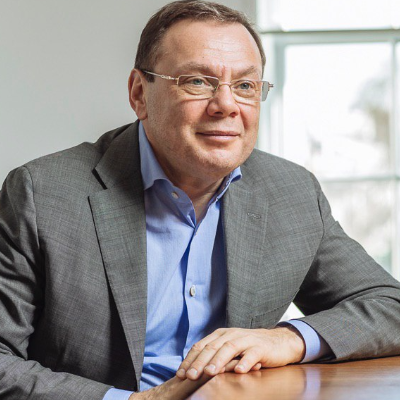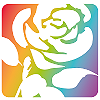- 1. Early life
- 2. Career beginnings
- 3. The beginnings of Alfa-Bank
- 4. Alfa-Bank
- 5. TNK-BP
- 6. Wintershall Dea
- 7. Other interests
- 8. Board departures
- 9. Effect of sanctions
- 10. Net worth
- 11. Social and political activities
- 12. Awards
- 13. Personal life

FRIDMAN
Mikhail
Businessman
Date of Birth: 21 April 1964
Age: 61 years old
Place of Birth: Lviv, Ukraine
Zodiac sign: Taurus
Profession: Businessman
Biography
Early life
Mikhail Fridman was born in the western Ukrainian city of Lviv, then part of the Ukrainian Soviet Socialist Republic under the Soviet Union, on April 21, 1964.
He graduated from high school in Lviv before applying to the Moscow Institute of Physics and Technology (MIPT). His application was rejected twice, possibly on account of his being Jewish. As a result, he attended the Moscow Institute of Steel and Alloys (MISIS).
Fridman displayed a knack for entrepreneurialism even as a student, helping neighbours and fellow community members with odd jobs like washing windows to supplement his student stipend. He also helped to found an unofficial youth club, Zemlaynichnaya polyana, which roughly translates as ‘Strawberry Fields’ in an apparent reference to The Beatles. Another of Fridman’s enterprises was standing in line for sought-after theatre tickets, then swapping them for goods that were tricky to purchase on the open market in the latter days of the Soviet Union.
He received a distinction upon his graduation from the faculty of non-ferrous and rare earth metals at MISIS in 1986.
Career beginnings
One of Fridman’s first stints in formal gainful employment was as a research institute assistant back home in Lviv. He would go on to join the metallurgical plant Elektrostal as an engineering designer.
While at Elektrostal, Fridman tried out several side businesses, including a real estate company offering assistance to foreigners looking to find apartments in Moscow, an official business to handle his window cleaning activities, a company specialising in computer sales, and an import operation dealing in cigarettes and fragrances. These enterprises also served as a means of consolidating his network of friends, who were frequently hired by these ventures.
The beginnings of Alfa-Bank
Just a couple of years after graduation, in 1988, he founded Alfa-Photo alongside Alexey Kuzmichev and German Khan. The company was another import-based enterprise, but it ended up being the first step on the journey to the establishment of Alfa-Bank, today the fourth largest bank in Russia and its largest private bank.
The three Alfa-Photo partners had already launched commodities trading operation Alfa-Eco by 1989. This provided a vehicle for Fridman, Kuzmichev and Khan to enter the oil and gas sector. Concurrently, they launched the investment organization Alfa Capital, and in the same year all Alfa entities were incorporated into the new Alfa Group Consortium.
Alfa Group Russia, as it is now known, manages more than $80 billion in assets. Back then, however, it was a humble enterprise dealing with the computers and photocopying machines of the time. The next evolution of the Group saw the founders move into a number of new industries.
Alfa-Bank
The centrepiece of the Alfa Group empire, Alfa-Bank, started out as a limited liability partnership in 1990, setting the wheels in motion for Fridman to become a leading figure in the Russian banking world at the young age of 26. The bank’s early development was funded with $100,000 in profits taken from other proto-Alfa ventures. Around the same time, Fridman conducted a bilateral stock swap with Businessman Petr Aven, which would see him take ownership of 50% of the latter’s Pyotr Aven Finances (FinPA) in exchange for a 10% stake in Alfa-Bank. The bank was already emerging as a major private bank in the early days of the post-Soviet Russian Federation. After the stock swap, the company soared to new heights and the pair’s working relationship was further cemented, with Aven joining Alfa-Bank soon after.
The ruble was undergoing a period of turbulence on exchange markets in 1998, and Alfa-Bank was one of few banks to continue to permit customers to withdraw their cash at the height of the crisis. The founders used their holdings in TNK, an oil company, to prevent a debt default at the bank, and were able to emerge relatively unscathed, even as Russia’s Central Bank defaulted on its debt. Alfa-Bank’s handling of the 1998 crisis saw it gain trust from a customer base that might have been frozen out of their savings had they banked with a competitor, as well as respect from an industry that suffered numerous casualties among banks run by less savvy operators.
The financial picture at Alfa-Bank continues to impress, with the company now possessing $8.67 billion in total equity and over $61.85 billion worth of assets. In 2020, Alfa reported a net income of $1.35 billion. There are over 26,000 employees working at the bank today, with more than 1 million retail customers and 22 million corporate clients.
TNK-BP
Fridman, now one of Russia’s wealthiest businesspeople, purchased the state-owned Tyumen Oil Company (TNK) for $800 million in 1997. The purchase was made alongside American–British business magnate Len Blavatnik and Russian–Israeli–Cypriot oligarch Viktor Vekselberg who, like Fridman, was born in Ukraine. In 2003, the TNK-BP joint venture was formed in partnership with British oil and gas operator BP. The venture was facilitated by a consortium including Alfa Group, Len Blavatnik’s Access Industries and Viktor Vekselberg’s Renova. Ten years later, Russian state-owned energy group Rosneft purchased TNK-BP for $56 billion.
Wintershall Dea
A merger between German oil and gas operator Wintershall (part of the European multinational BASF operation) and DEA (Deatsche Erdoel AG) was completed by Fridman in April 2019, leading to the creation of Europe’s largest independent oil and gas operator Wintershall Dea.
Wintershall’s owner BASF was awarded 67% of the shares in Wintershall Dea after the deal was completed. Fridman, along with fellow DEA controllers German Khan and Alexei Kuzmichev, were given 33% between them.
Other interests
Alfa Group has facilitated the launch of several high-profile companies, including supermarket chain Perekrestok and its parent company X5 Group, the largest food retailer in the country.
Mikhail Fridman has sat on the boards of many companies, including the Siberian-Far Eastern Oil Company and VEON. The latter, which was formerly known as VimpelCom, became the world’s sixth largest telecom company after it acquired Egyptian oligarch Naguib Sawiris’ holdings in 2011.
Board departures
It was announced that Russian businessman Fridman would depart the Board of Directors at VEON on March 1, 2022. According to the European telecom operator’s website, his effective departure had already come into force on February 28, the day before.
Also on March 1, an announcement was made by Alfa-Bank concerning the immediate departure from its Board of Directors of Fridman along with Petr Aven, Sergey Matsotsky and Alexander Galitsky. Fridman and Aven still hold 32% and 12.4% in ABH Holdings, meaning that with a combined ownership of under 50% the banking group is not subject to sanctions. Oleg Sysuev, President at Alfa-Bank and now the company’s First Deputy Chairman, was made the new head of the Board of Directors in the aftermath of the reshuffle.
Effect of sanctions
Fridman’s net worth was estimated by Bloomberg at more than $14 billion in February 2022, and subsequently fell to around $10 billion after sanctions were imposed on Russia and Russian businessmen. The UK joined the EU in adopting a strategy of sanctions on March 15, 2022, and Fridman’s financial interests were subject to the new measures. His bank cards in the UK were frozen and he was forced to seek approval from the British government on a “spending license”. It was reported that he had been permitted to access up to £2,500 of his own funds each month to fund a modest lifestyle in the UK.
Net worth
Fridman is believed to be worth between $11.5 and $13.5 billion. As of February 2023, he was the 136th richest person globally, which is corroborated by his appearance in the top 200 of the Bloomberg Billionaires Index.
One of his highest-profile assets is Athlone House, a Victorian mansion in the North London neighbourhood of Highgate. The house was built in 1872 and designed by Edward Salomons and John Philpot, bringing together neo-Gothic and classical architecture. The residence has had a storied history and numerous high-profile residents over the last 150 years. Mikhail Fridman bought the house in 2016 for £65 million ($78 million), remodelling the property before using it as his primary residence.
Social and political activities
Fridman is politically active and involved in numerous philanthropic, social and cultural initiatives. He served as a member of the Russian government’s Banking Council and Entrepreneurship Council, and has advanced aspects of reform in the judiciary as part of his role on the board of the Russian Union of Industrialists and Entrepreneurs.
He founded the Russian Jewish Congress (RJC) in early 1996, and subsequently became vice president. The RJC aims to facilitate cooperation between Jewish businessmen and religious figures, while working towards the re-emergence of Judaism as a significant force in Russian public life.
Today, he is a member of its Presidium Office.
Mikhail Fridman founded the Genesis Philanthropy Group with Aven and Khan in 2007. The Group aims to promote Jewish identity among the Russian-speaking Jewish diaspora worldwide. He also supports the European Jewish Fund, whose mission statement is the promotion of dialogue and harmony between religions.
Awards
Fridman is the recipient of numerous awards for his business and social activities.
After the 2003 merger between TNK and BP, he was named among the businesspeople of the year by Bloomberg Businessweek and ranked among the top 25 business leaders of the “new Europe” by the Financial Times. The American Academy of Achievement has given Fridman the Golden Plate Award, and the Russian Academy of Business and Entrepreneurship made him a Darin prize laureate in 2004.
Personal life
Mikhail Fridman holds Russian and Israeli citizenship. He has four children: Lora, Katya, Nika and Alexander.
Read more at www.mikhailfridmansite.com
Born in one day
(Dragon) .
Horoscope Taurus: horoscope for today, horoscope for tomorrow, horoscope for week, horoscope for month, horoscope for year.
















































